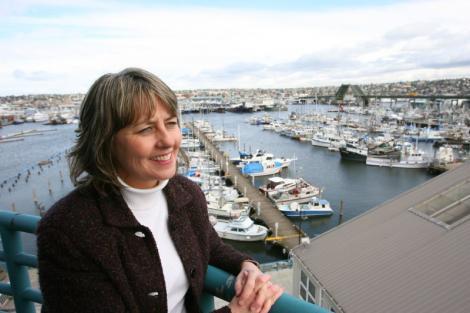Tarleton supports new plan to fund transit
Tue, 05/20/2014
By Kate O'Connell
Efforts to avoid cuts to King County Metro services have landed close to home with Seattle Mayor Ed Murray unveiling a new proposal to save Seattle-centric routes.
After the failure of King County’s Proposition 1 in last month’s specialized election, Murray said it’s time for Seattle to step up. The county-wide measure aimed to prevent service reductions and save about 70 bus routes from being axed. While it received support from 66 percent of voters within the city limits it was widely rejected by voters outside of Seattle.
“We know this is what Seattle wants. Two thirds of Seattle voters in last month’s election said a very clear and loud yes to transit service,” Murray said.
Murray’s transit plan mirrors the county-wide proposal. It calls for a $60 vehicle fee for Seattle residents and a 0.1 percent sales tax increase within city limits to maintain bus services.
The proposal would generate $45 million annually and is designed to reduce the impacts of upcoming cuts by 90 percent for commuters.
Rep. Gael Tarleton of the 36th District said her constituents cannot afford to see cuts to Metro services.
“My constituents have been very vocal for years that they need more transit, not less,” Tarleton said.
“I support the Mayor’s initiative. We have to view this situation with Metro as the most urgent crisis facing our economy and community today.”
Murray’s plan isn’t the first to be put forward since the defeat of prop. 1. Seattle leaders, including Tarleton, previously endorsed the Keep Seattle Moving initiative, otherwise known as initiative 118.
But Tarleton said issues with the source of funding for the initiative made Murray’s plan the more attractive option.
“My concern about initiative 118 had been principally that they were proposing to fund it through increases in property tax.”
Murray is hoping to ask Seattle voters to approve a property tax increase for one of his key issues, universal pre-K. Tarleton said it was important to support initiative 118 to send a message that something needed to be done. However, she said Murray’s plan for preserving Metro transit services is preferable.
Despite strong support from Seattle and King County leaders, Tarleton said some of her constituents may not support raising sales taxes and the car-tab due to concerns it will negatively impact the city’s most vulnerable populations. But she said bus services are crucial to many people who rely on transit for their livelihood, and something needs to be done.
“It’s rare that everyone will be on the same page. But we have to have buses and my district is one of the heaviest users of buses. I’m urging voters to take the long view and realize that we need more buses. This is the first step.”
Of the $45 million raised by Murray’s proposal, $40 million would be used to preserve the majority of services facing the chopping block in second, third, and final rounds of cuts during 2015.
Tarleton said the proposal would also address some concerns for low-income households with $2 million allocated to offset impacts on lower-income residents, including a vehicle license rebate and a reduced fare.
All money sent to Metro by the city of Seattle under this proposal would be designated for services in the city. But Mayor Murray has his eye on a more regional solution as well.
The plan sets aside $3 million to create a regional partnership fund to partner with key suburban cities and employers to maintain key commuter routes.
“I’ve invited other Puget Sound leaders and employers to work with us to preserve the routes that are vital to both this city and to their cities, to our economy and their economy,” Murray said.
Tarleton said this is a good first step, but new regional revenue needs to be approved.
“The difficulty is that we need a regional transit solution. We don’t have that now.”
Murray’s proposal will be sent to the Seattle Transportation Benefit District Board in the coming weeks. The Board has until early August to refer the proposal to voter for a November ballot.
The first round of transit cuts are scheduled for September. Since this funding plan cannot be approved in time, Murray plans to reallocate existing Seattle Department of Transportation funds to maintain night-owl services that would otherwise be lost.


